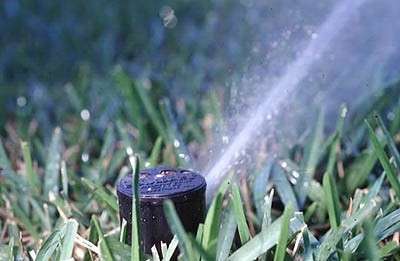Survey shows homeowners want incentives to conserve more water

Homeowners with irrigation systems would use less water if they were offered more incentives, according to a new University of Florida Institute of Food and Agricultural Sciences report.
Most will even pay more for better water quality.
Respondents to a UF/IFAS online survey of 3,000 homeowners in Florida, Texas and California said reducing the price of water-efficient equipment would be the most effective strategy. That was followed by more practical information on household water conservation, easier identification of water-efficient appliances and better landscape irrigation ordinances.
Additionally, respondents liked the idea of a real-time water use mobile app and more information on the environmental impacts of water conservation.
"We know that informed homeowners are aware and concerned about the environmental consequences of excessive irrigation water use. However, awareness and concern are necessary, but not sufficient, conditions for resource and water conservation," said Hayk Khachatryan, an assistant professor of food and resource economics and the lead investigator in the survey. "Efforts in promoting the adoption of water-saving irrigation systems and practices will be more successful when environmental conservation measures are combined with economic incentives such as utility or manufacturer rebates on smart irrigation equipment."
To get better-quality water, 64 percent of survey participants said they're willing to pay higher monthly water bills. Of those, 26 percent said they'd pay less than 5 percent of their current bill; 30 percent would pay 5 percent to 15 percent more and 8 percent were willing to pay more than 15 percent.
UF/IFAS researchers used the survey to analyze U.S. household water use and irrigation practices. They surveyed homeowners in Florida, Texas and California based on water scarcity issues identified in a U.S. Environmental Protection Agency report from 2008.
The survey was conducted by Khachatryan, a faculty member at the UF/IFAS Mid-Florida Research and Education Center in Apopka, Florida, and his post-doctoral research associate, Alicia Rihn.
Many respondents said they were aware of water restrictions in their area, and they know that their water conservation efforts affected the overall water supply.
UF/IFAS researchers asked participants about governmental and non-governmental incentives that may contribute to consumers' purchase and installation of water-conserving items.
Of those surveyed, more than 80 percent said they do not receive government or utility company financial support for water-conserving purchases.
Government or utility company incentives to purchase these items were fairly scarce. About 18 percent of respondents said they received an incentive to install low-volume /dual flush toilets. Only 17 percent said they received rainwater collection tanks, and only 16 percent received flow-restrictor taps/low-water shower heads.
More information: Household Water Usage and Irrigation Practices: edis.ifas.ufl.edu/pdffiles/FE/FE99600.pdf
Provided by University of Florida













